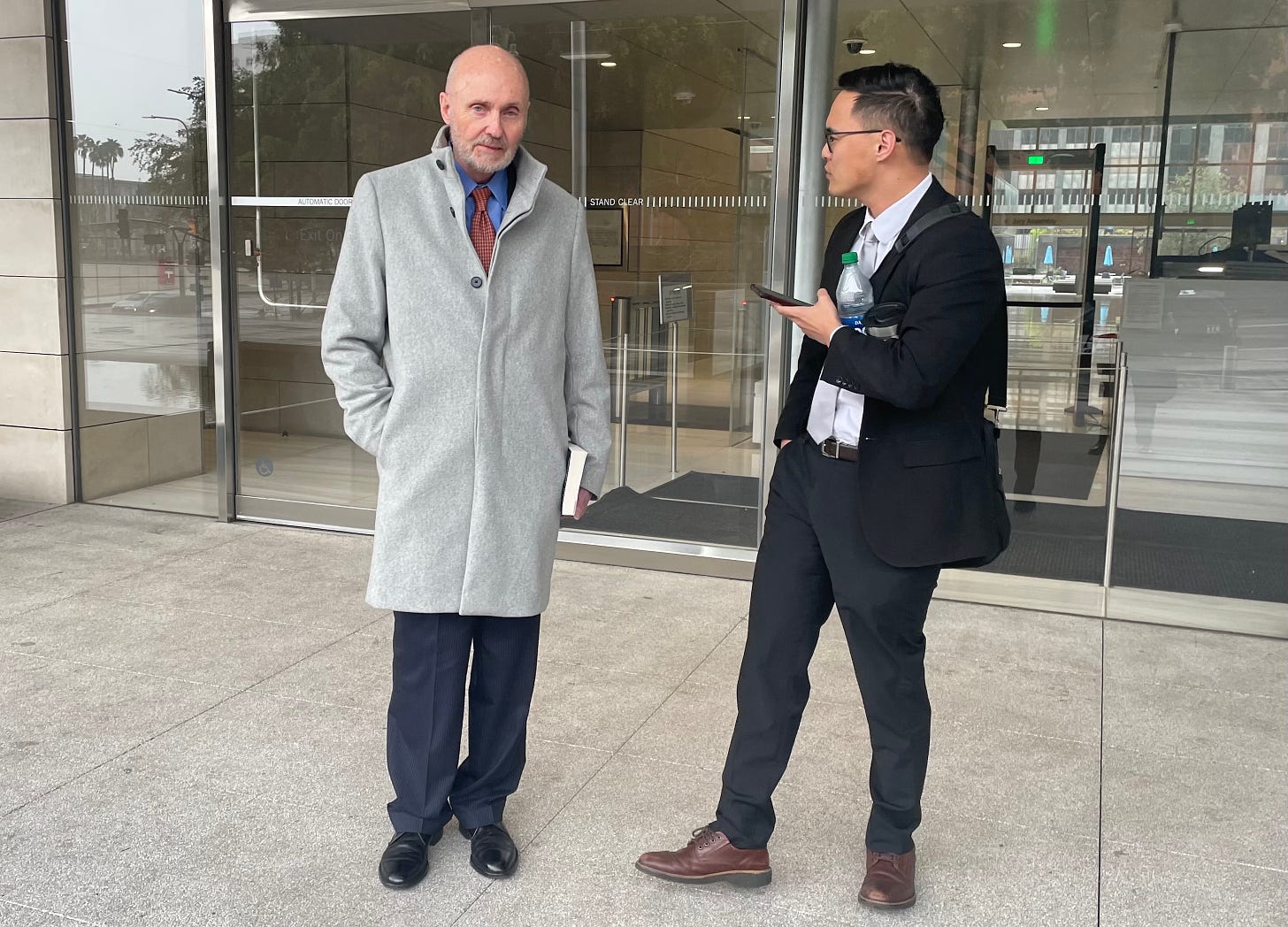Billion-dollar fraudster's failure to ID surgeon in criminal trial doesn't stop jury's guilty verdicts
Michael Drobot testified in U.S. District Court shortly after completing his 63-month sentence in the massive Pacific Hospital spinal surgery kickback scheme.

Almost two weeks removed from prison, the former hospital owner who masterminded the largest fraud in California history stepped down from the witness stand …


